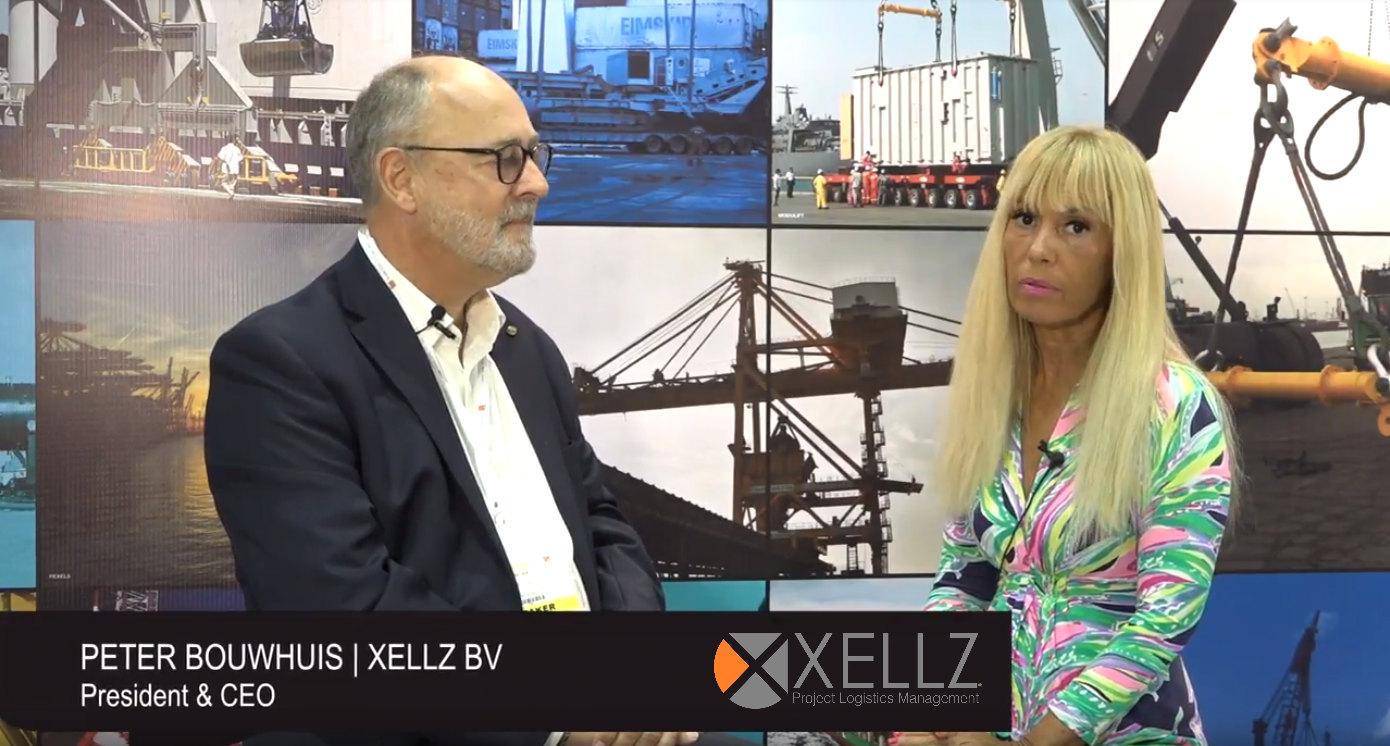To be a project logistics manager is not an easy job. It’s not enough to design and create project logistics plans and delegate tasks to the team(s). First think, you have to be a leader, a people manager and a very clear communicator in order to succeed.
With lots of skills to learn, which of them should be your focus on developing these skills?
In this article, we will walk you through 8 vital but often overlooked project logistics management skills. You’ll better understand the importance of these skills and how to develop them further.
To qualify as a Project Logistics Manager (PLM), you have to demonstrate a number of skills and competencies across different disciplines. No matter whether you want to get certified or not, a look at these competence requirements is a good way to start.
Knowledge & Performance
- Project Logistics Integration management
- Project Logistics Scope management
- Overall Time management
- Project Logistics Cost management
- Project and contractor Quality management
- Superb Communication Skills
- Project logistics human resource management
- Risk management
- Stakeholder management
Regardless of your industry or specialization, there are a few skills that will serve you well on every logistics project.
These are:
1. Leadership
Leadership is a complementary to management. While the latter focuses on managing complexity, the former brings order and vision to logistics projects. No wonder that project logistics managers are required to have leadership talent besides management skills and competence.
There is a direct correlation between the complexity of a logistics project and the need for leadership. As a matter of fact, one influential paper even suggests that positive leadership contributed almost 80% to any project logistics success.
Break down the elements that make a logistics project successful and you’ll find that they’re all linked to leadership in some way or form. Communication, team building, strategy setting – these are all important PLM skills that are also important to leadership.
Become a better leader and you’ll for sure be a better project logistics manager.
How to adapt leadership
Leadership is not an easy skill to obtain. You can’t really learn it from a book; it has to be mastered in practice.
Begin by identifying the core areas that make up a good leader. leadership has four key components:
- The ability to adapt to changes.
- The ability to motivate others.
- The ability to communicate a vision
- Integrity and authenticity
Try to use these skills in your projects. Identify a few things you can do in all four steps of the logistics project that would positively add towards leadership.
For example, In the ‘initiate’ stage, you can focus on motivating resources and establishing the project vision. In the ‘close’ stage, you can reward and recognize positive project contributions.
2. Communication
Communication sits at the very center of project logistics management. Between outlining the project vision, delegating authority and collaborating with all the stakeholders, you’ll have your hands full with emails, phone calls and projeXsmart system updates and task communications.
In an analysis of the most important project logistics management competences among practitioners, we note that:
“Good project logistics managers need to have good effective communications skills with people at all levels during the project. They need to fully understand cross cultural behaviors and need to accept people for what and who they are”
Efficient and effective communication is at the root of good leadership which, as we saw earlier, is essential for project logistics management.
How to improve communication
Effective PLM communication has six aspects:
- What to communicate
- Why the message is necessary
- Who to send the message to
- Where to send the message
- When to send the message
- How to send the message
For any complex logistics project, you should have a project communication plan that defines each of the above for any scenario. If you have an emergency, you should know exactly who to communicate with, what to communicate and how to communicate it.
3. Influencing Others
Project logistics management is, at its core, people management. And managing people essentially means managing their emotions, building trust and convincing them to do their best.
So, project logistics managers need to influence others effectively.
In a logistics project, you will need to use your ability to influence others in several situations, such as:
- Selling the benefits of a project to a stakeholder
- Helping team members to unblock their values to improve performance.
The more complex the logistics project, the more you’ll need this critical skill. As the stakes get higher, the amount of resistance and objections increases as well. Wielding influence effectively can mean the difference between a successful or a stalled project.
4. Conflict Management
Conflicts are inevitable in any logistics project. You’ll have conflicts between team members, between team members and stakeholders, and even between yourself and your team.
The ability to manage and resolve conflicts is an understated but critical skill for project logistics managers. Conflicts can arise due to a number of reasons, such as:
- Clash of interests between stakeholders and team members, or between team members.
- Project Scope and schedule changes especially post-initiation phase.
- Project logistics management conflicts over how the PLM communicates, delegates and manages the project.
- Vendor disputes that can hold back a project’s progress.
Given that project managers spend roughly 15% of their time resolving conflicts, conflict management is an essential skill that will hold you in good stead as a project logistics manager.
How to learn conflict management
In short, there are four approaches to resolving conflicts in a project in order of effectiveness:
- Confronting, where both parties confront their issues and reach a resolution through direct communication. This is the preferred way to resolve most problems
- Compromising, where the parties reach a resolution through ‘give and take’.
- Smoothing, where one party downplays its own problems to ensure project completion. This isn’t always ideal since it leaves one party dissatisfied with the resolution.
- Forcing, where one party forces the other party to accept its position. This usually leads to resentment.
5. Task Management and Project Scheduling
Task management and project scheduling are the bread and butter of any project logistics manager’s work.
Project logistics scheduling, is the process of breaking down a project into its constituent activities and allocating resources for them. You have to factor in the resources available to you and how to best utilize them.
- Task management is where you list and manage the tasks involved in accomplishing logistics project activities.
You’ll need both project logistics schedules and task management to run the project smoothly.
How to learn them
The best way to learn project logistics scheduling and task management is to use a project logistics management tool (like projeXsmart in the case of XELLZ). This tool typically include templates to help you create project schedules. You can then create tasks associated with each project logistics activity and track their progress within the online application.
6. Risk Management
Any complex project logistics is inherently risky. The risks can range from the sudden departure of a key team member to a delayed delivery from a vendor.
Foreseeing and planning for such risks is called risk management.
“Risk management measures the uncertainty involved when you plan and schedule during a logistics project, and allows the project logistics manager to obtain a consensus on how to best handle risks and unexpected events within and during the logistics project”
Risk management should make you a better manager because it is such an overlooked competence. Since most risks aren’t urgent, PLMs often ignore or delay planning for them. Consequently, when risks do arise, logistics managers don’t have fail-safe systems to manage them.
This is why XELLZ calls risk management a “vital key to effective project logistics management”.
7. Coaching Team Members
As project logistics manager, your job is to be the go-between all stakeholders and the people working on the project. The more complex the project, the more people you’ll have who don’t know what the project demands are.
Being able to coach such team and get the best out of them is a vital project logistics management skill.
Coaching becomes even more important when you have external resources working on the project (freelancers, contractors, etc.). Since these people might not be familiar with your requirements and processes, you’ll need to coach them to get better results.
Generally speaking, the more inexperienced your team, the more coaching they’ll need.
Coaching, thus, is a form of leadership and effective communication.
To coach team members to do their best, you need to:
- Communicate clearly with stakeholders to fully understand their requirements.
- Document all processes and requirements to help team members (internal and external) get on board quickly.
- Work with team members to help them understand their weaknesses and strengths.
- Influence team members to deliver their best results by focusing on the project’s benefits, creating a positive work environment and emphasizing the big picture.
Do this and you’ll be a better coach, leader and project logistics manager.
8. Cost Management
As a project logistics manager, the project budget is the canvas you work with. What you can do (and can’t) will depend on the project budget you have access to.
Since budgets are usually fixed, managing the project costs becomes a vital skill for project logistics managers. While the quality of the final work is important, what often matters more is whether you were able to deliver the work within budget.
As the XELLZ Project Logistics Management process notes:
“The project logistics cost management function maintains its important focus at every stage throughout the project life cycle ..the management of cost is the most important as all project aspects affect this function. What counts for the customer is the “bottom line.”
How to learn cost management
Effective project logistics cost management is rooted in practice, not theory. The more projects you plan and deliver, the better your estimates.
Case studies are a great way to learn cost management.





